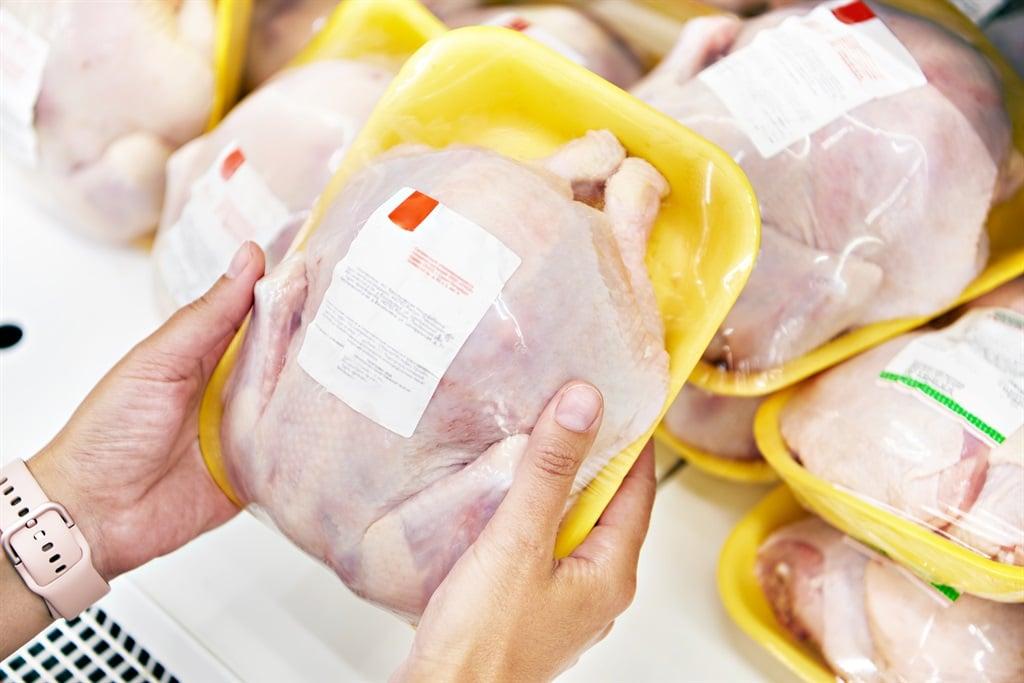Africa-Press – South-Africa. Industry stakeholders are calling on SA’s government to take emergency steps to mitigate the impact of an avian flu pandemic in case it spreads to Brazil – a key supplier of poultry to SA – which could in turn spark a rise in food prices and further strain consumers’ pockets.
This comes as the Western Cape Veterinary Services warned poultry farmers on Wednesday that avian influenza has been detected on two commercial layer farms in the Paardeberg area. Approximately 120 000 birds have died or have been destroyed. The exact strain involved is still unknown and is being investigated.
Should SA face a serious outbreak of avian flu, it could have significant implications for the country’s food security. Meanwhile Brazil is SA’s biggest source of imported poultry, accounting for just over half of imports.
To date, Brazil has remained free of infection. But Fred Hume, managing director of import company Hume International, believes it’s not a matter of if, but when the outbreak spreads, which could lead to “dire consequences” for SA’s poultry supply.
Hume International imported about 60 000 tonnes of poultry last year, with SA importing about three times as much poultry as it exported in terms of nominal value.
Hume is calling for the SA government to change its protocols to allow the local heat treatment of imported poultry.
“SA needs to urgently agree on a heat treatment protocol for mechanically deboned meat (MDM) in case of a bird flu outbreak – such as the protocol currently in place for pork sourced from approved markets abroad,” Hume says.
“In general, MDM is already subjected to heat treatment to reduce the risk of microbial contamination. The process typically involves cooking meat at high temperatures for a specific time. Such a protocol could simultaneously safeguard MDM supply chains while putting consumers at ease.”
Hume also wants government to consider implementing regional rather than countrywide bans where possible, and to reinstate import permits faster. In the case of the US, for example, SA typically only bans imports from individually impacted states.
“Once a country has been declared bird flu free, DALRRD [the Department of Agriculture, Land Reform and Rural Development] must be more proactive than they have in the past in reinstating import permits for that particular country. In some cases, bans have remained on countries for years after they have been declared bird flu free,” says Hume.
Hume is not alone in calling for reforms. Agriculture economist Dr Johnny van der Merwe of agriculture trends forecaster AMT recommends putting measures in place to deal with an emergency – though he doesn’t believe allowing heat treatment in SA of imported MDM meat is necessarily the answer.
This is because bans on imports from source markets with outbreaks of bird flu will impact local prices and food inflation.
“Certain protocols must be put in place beforehand to deal with such an issue. One cannot wait until there is an emergency in terms of supply. At the same time, it is important to protect the competitiveness of our local producers. So, just opening it up to anyone to import anything and then heat-treat it in SA can hurt local producers,” says Van der Merwe.
“At the same time, we must put measures in place to meet local consumption demand and prevent prices from going up due to a shortage, but first of all, we must protect the local industry.”
The SA Poultry Association (SAPA), meanwhile, doesn’t believe heat treatment is necessarily the answer – and reckons there are other options to avoid damaging price spikes or supply shortages.
Izaak Breitenbach, general manager of SAPA, believes any protocol to import MDM as fresh or frozen products and then use it in products cooked or heated locally could pose a significant risk.
But he does agree a regional approach – or heat treatment before it is imported – could work.
“There are two ways to allow poultry imports being discussed at present. The one is compartmentalisation – where a ban is not imposed on a country as a whole but only on areas with outbreaks of bird flu.
“The second is where a product is heat treated [beforehand] so that the threat of importing the disease is minimised.”
Breitenbach says he has yet to see price increases due to a shortage of poultry products, though.
SA overproduction
“We are overproducing in SA currently – there is more product in the market than is consumed. Therefore, it is not at present a major contribution to price. If there is a shortage of MDM, the price will go up,” he says.
“Most MDM imported to SA comes from Brazil, but that is not the only country in a position to export to SA. Countries like Ireland and Australia are in a position to do so too. So, even if imports from Brazil were banned if bird flu breaks out there, there will be other options,” he adds.
Agriculture economist Wandile Sihlobo of Agbiz also does not foresee shortages of poultry products in SA any time soon.
“We have substantive production domestically, and the imported share of products comes from diverse markets. I don’t think SA should necessarily change its regulations at the moment,” he says.
The DALRRD says it is carefully assessing all available internationally acceptable and scientific options.
“South African poultry producers have gone to great lengths and expense to tighten their biosecurity measures on farms in an attempt to limit the introduction of the disease onto their flock. Allowing meat imports from infected countries while our local producers are subjected to these extreme measures will be a slap in their faces,” said the department.
“Our veterinary services continue to engage with the Brazilian and Argentinian veterinary authorities in light of South America’s looming avian influenza outbreaks.”
For More News And Analysis About South-Africa Follow Africa-Press






